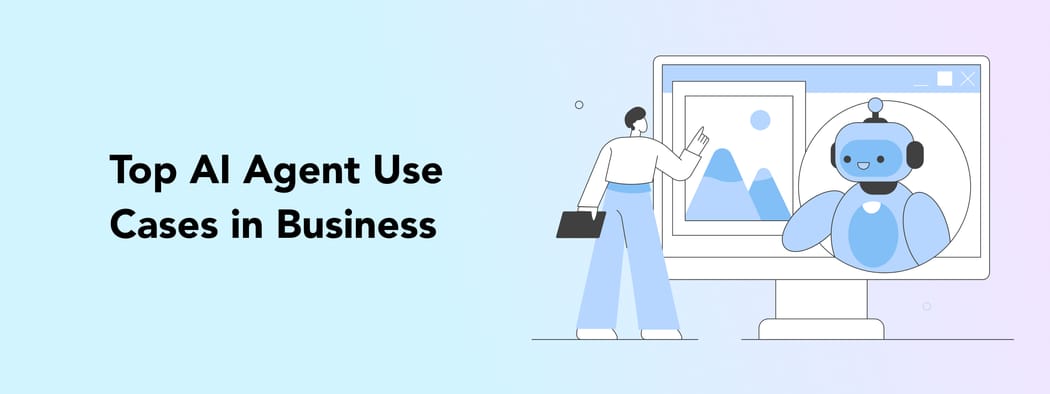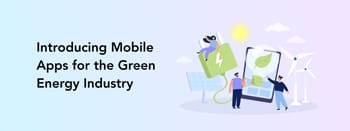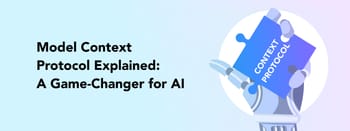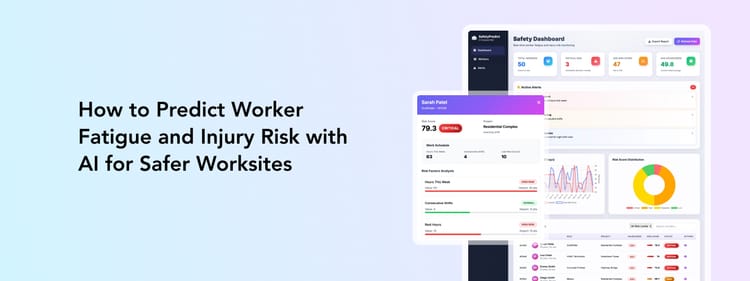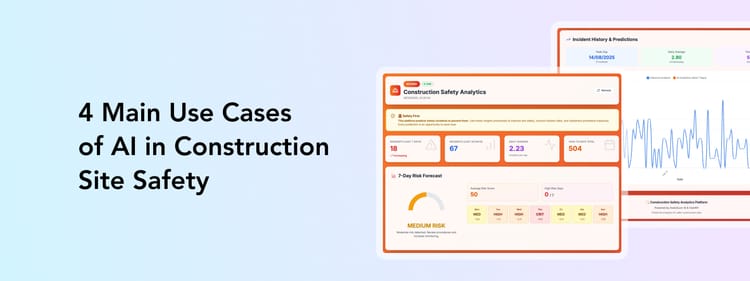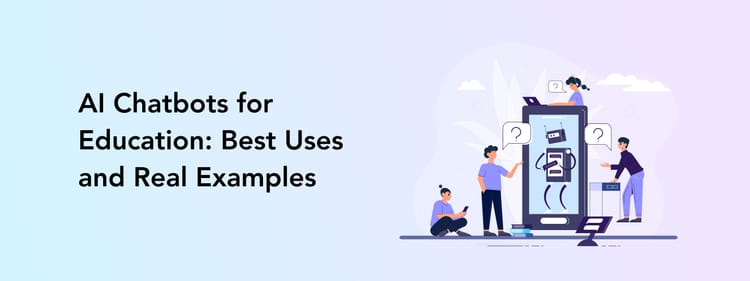When we think about AI in the business world, what usually comes to mind first are chatbots and generative AI tools. And it makes sense — chatbots are one of the most accessible and easy-to-implement AI solutions available today. But while they’re useful, there’s a new class of AI tools offering even more potential: AI agents.
The key advantage of AI agents lies in their autonomy. Unlike traditional tools that rely on constant user input, AI agents are capable of acting independently. They can make decisions, execute tasks, and adapt to new information — all with minimal human oversight.
While earlier versions of autonomous software have existed for years, generative AI has taken things to a new level. Thanks to its natural language capabilities, AI agents can now plan tasks, use tools online, collaborate with people and other agents, and even learn from experience. This makes them capable of acting as skilled virtual coworkers — handling everything from booking complex travel itineraries to turning plain-language ideas into functional, tested, and deployed code.
Based on our recent experience helping clients implement AI agents, we’ve gathered some of the top AI agent use cases for businesses. Let’s take a look.
How Do AI Agents Work?
AI agents are intelligent software systems that can perform tasks and make decisions on their own, without the need for constant human input. Unlike traditional automation tools that follow predefined instructions, AI agents can understand context, plan actions, adapt to new data, and improve over time.
They can process various types of input, like text, audio, or video, and interact with external systems like APIs or other tools to reach specific goals. Their ability to reason, act, and learn allows them to work independently or alongside humans in complex workflows.
As described by McKinsey’s Lari Hämäläinen, generative AI agents are capable of orchestrating tasks across multiple systems, coordinating with other agents, applying logic, and evaluating results. These agents not only boost human productivity but also help fully digitize internal operations and customer-facing services. In practice, they can support everything from customer interactions to internal operations — and with each interaction, they get better at what they do.
Top Use Cases of AI Agents for Business
Let’s explore some of the best applications of AI agents in business, where these systems act as intelligent collaborators capable of navigating complexity, adapting to feedback, and supporting real business outcomes.
AI voice agents replacing voicemails
Many businesses are adopting AI voice agents to manage calls more efficiently. These agents can handle greetings, answer common questions, route requests to the right department, and collect caller information in real time.
When a customer calls, the AI voice agent picks up instantly and uses natural language understanding to identify the purpose of the call. It might ask a clarifying question, then either provide a direct response, record relevant details, or transfer the call to the appropriate person.
All collected information is automatically logged into the company’s CRM or support system, so human agents can jump in with full context if needed. The entire process reduces wait times and eliminates the back-and-forth typically involved with traditional voicemail systems.
Smarter lead generation
AI agents support lead generation by responding to inquiries, qualifying potential customers, and customizing follow-up communication. They analyze available data to prioritize leads based on behavior or engagement, helping teams focus their efforts where they matter most. These agents integrate with customer relationship management systems, ensuring that no opportunity is lost and that leads move smoothly through the pipeline.
When a lead enters the system, the AI agent reaches out automatically through email, chat, or voice, asking relevant questions to assess interest and fit. Based on the responses and past interactions, the agent scores the lead and routes qualified prospects to the sales team. It can also trigger automated follow-ups, schedule meetings, and update lead status in real time. This hands-off process saves time and ensures consistent communication, especially when dealing with large volumes of inbound leads.
Natural language as the interface
Teams can guide AI agents using simple instructions written or spoken in everyday language. This removes the need for technical skills and allows employees in roles such as operations, marketing, or HR to interact directly with AI systems. By removing the complexity of code-based interfaces, AI becomes a more widely accessible tool across the organization, which encourages broader adoption and speeds up task completion.
In practice, a team member can type or say a request like “Summarize this report,” “Generate a client proposal,” or “Schedule a follow-up meeting for next Tuesday.” The AI agent interprets the intent, selects the right tools or data sources, and carries out the task automatically. It might draft an email, create a document, update a calendar, or fetch analytics — all without writing a single line of code.
Automating complex workflows
Many business processes involve changing inputs, uncertain paths, and tasks that require careful judgment. AI agents can manage this complexity by dividing workflows into smaller pieces, making decisions independently, and adjusting plans as new information appears. These agents are capable of analyzing large amounts of data, coordinating with other systems, and taking action to complete each stage of a workflow.

Software collaboration
AI agents connect with software platforms already used by teams, such as customer support tools, cloud-based office suites, design environments, and analytics dashboards. They move data between platforms, analyze information, and assist with task coordination. Instead of requiring employees to manage multiple systems or perform repetitive actions, agents operate across platforms as digital collaborators, creating smoother workflows and reducing the effort needed to complete tasks.
Smarter credit assessments
In the financial sector, AI agents can assist with credit evaluations by collecting documents, performing financial analysis, highlighting risks, and drafting credit memos. These agents reduce the time required for manual reviews while maintaining accuracy and consistency. Analysts and decision-makers can review the agents’ outputs and drill into how conclusions were reached. The ability to trace every step improves transparency and helps teams complete assessments faster with fewer errors.
As noted in a McKinsey analysis, “Unlike simpler architectures, agents reduce review cycles by 20–60%,” making them a valuable asset in streamlining credit processes while minimizing risk. Their ability to coordinate tasks, ensure data completeness, and flag inconsistencies leads to faster, more reliable decisions.
Code modernization made easy
When organizations aim to upgrade legacy systems, AI agents can support each phase of the process. Rather than simply translating outdated code, they analyze existing applications, determine what holds business value, and suggest modern architectures or cloud-friendly solutions.
Specialized agents can document old code, recommend alternatives, and perform tests to validate changes. This collaborative approach between agents and human engineers helps reduce technical debt and accelerates system upgrades while maintaining alignment with business goals.
In practice, teams have seen significant reductions in modernization timelines and improvements in code quality and documentation accuracy.
Smarter marketing campaigns
Marketing teams benefit from AI agents that can assist with campaign development, content creation, audience segmentation, and performance analysis. Agents generate creative ideas based on current market trends, prepare tailored messages, and optimize distribution strategies. Throughout the campaign lifecycle, agents respond to performance data and suggest adjustments. By working closely with marketing professionals, agents ensure brand consistency and allow campaigns to be launched and improved more efficiently.
Business benefits of AI Agents
AI agents offer more than automation. With the ability to reason, adapt, and act independently, they create opportunities to simplify operations, reduce manual effort, and enhance decision-making across the organization.
Flexibility in handling complex workflows
Many business processes don’t follow a straight path. They include unpredictable inputs, edge cases, or exceptions that traditional rule-based automation systems struggle to manage. AI agents can break down these workflows, adjust to changing circumstances, and complete tasks without predefined logic. This allows companies to tackle scenarios that were previously too time-consuming or expensive to automate.
Deeper integration with business tools
Agents can work within existing software environments, connecting tools and data sources that teams already use. They can gather information from reports, update dashboards, communicate with APIs, and track changes across systems. This level of collaboration reduces duplication of effort and helps teams maintain consistency without switching between platforms.
More intelligent and transparent decision support
AI agents can analyze structured and unstructured data, generate insights, and explain the steps behind their conclusions. This transparency helps teams trust the output and make decisions faster. Agents provide relevant information without requiring employees to manually compile or interpret it, which is especially useful for research-heavy roles or regulated environments.
Scalable value across business functions
Once in place, AI agents can be applied across departments to handle repetitive or time-intensive tasks. Whether supporting marketing campaigns, financial reporting, HR onboarding, or IT infrastructure, they create reusable components that scale with the business.
As one CIO put it, “I don’t want one tool to solve one problem; I need a capability to solve hundreds of problems.” A strategic approach to agent adoption ensures long-term value and adaptability.
Consider Perpetio Your Trusted Partner
AI agents are already changing how businesses operate — helping teams work smarter, automate more complex tasks, and unlock new possibilities across departments. Their ability to act independently, integrate with existing tools, and adapt to real-time feedback makes them a powerful addition to any modern workflow.
At Perpetio, we’re actively exploring the use of AI agents in our own projects and are ready to bring this expertise to your product. Whether you want to optimize internal processes, modernize legacy systems, or add intelligent features to your app, we’re here to help.
You can receive a free AI agent consultation by reaching out through our website contact form or emailing us directly at contact@perpet.io. Let’s discover what AI agents can do for your business.
